The pH balance in your body plays a pivotal role in your overall health. pH, short for the potential of Hydrogen, is a measure of acidity or alkalinity, and in the human body, a tightly regulated pH is critical for the optimal functioning of biological processes. This article will delve into the importance of pH in human health, demonstrating how it impacts various systems and processes within the body.
Contents
- 1 Understanding pH In The Body
- 2 The Importance Of Maintaining pH Balance
- 3 How pH Influences Digestive Health
- 4 pH And The Respiratory System
- 5 pH In Blood And Its Critical Role
- 6 Skin pH And Its Significance
- 7 pH’s Impact On Bone Health
- 8 The Influence Of pH On Kidney Function
- 9 pH In Human Health: Disease Links
- 10 How Diet And Lifestyle Affect Your Body’s pH
- 11 Testing Your Body’s pH
- 12 Be Mindful Of The Role Of pH In Human Health!
Understanding pH In The Body
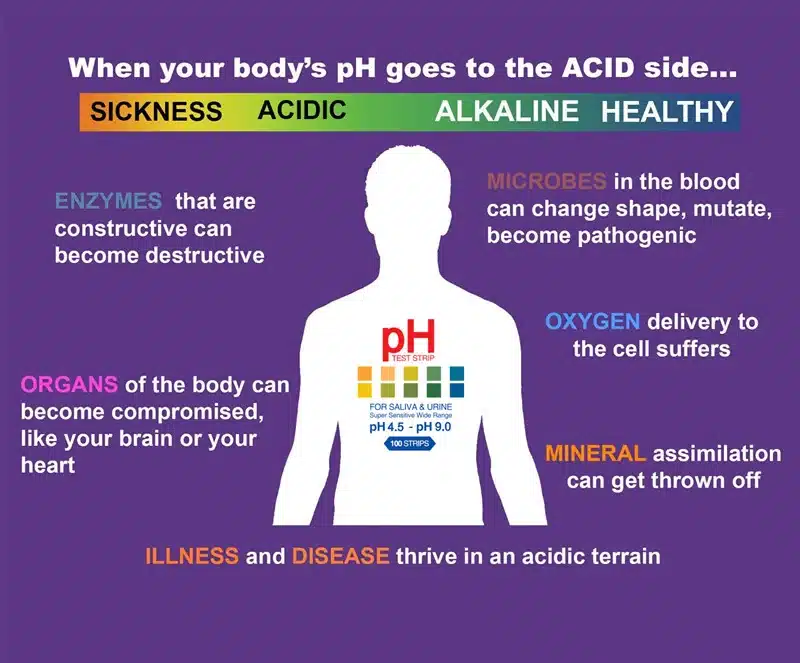
The term pH represents how acidic or alkaline a solution is, with a scale ranging from 0 to 14. In a biological context, the human body typically maintains a slightly alkaline pH level, around 7.4, to ensure the optimal functioning of your physiological systems. This balance is maintained through homeostasis, a dynamic equilibrium that keeps your body’s internal environment stable.
In essence, the body’s pH balance ensures that your body’s various environments, from the highly acidic stomach to the alkaline bloodstream, work in harmony. Disruptions in this balance can result in health issues, as biological processes may not function correctly in too acidic or too alkaline environments.
The Importance Of Maintaining pH Balance
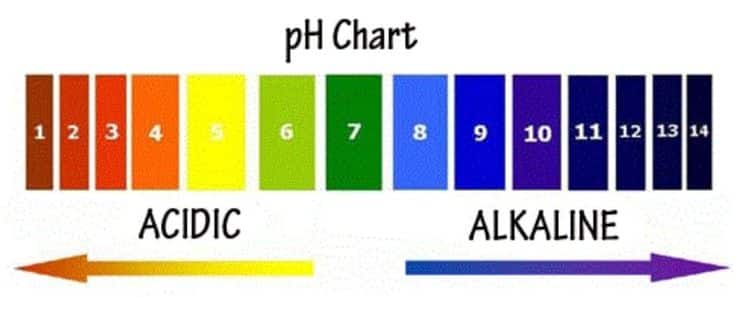
Maintaining a balanced pH is vital for health because it affects every cell in your body. Your cells require a specific pH level to optimally carry out their metabolic functions. When pH levels are either too acidic or too alkaline, these functions can be impaired, leading to potential health issues.
When pH balance is disrupted, your body works tirelessly to restore equilibrium. For instance, if your body becomes too acidic, your body might draw on alkaline mineral stores, like calcium from bones, to neutralize the excess acidity. Thus, persistent pH imbalance could potentially lead to conditions like osteoporosis.
How pH Influences Digestive Health
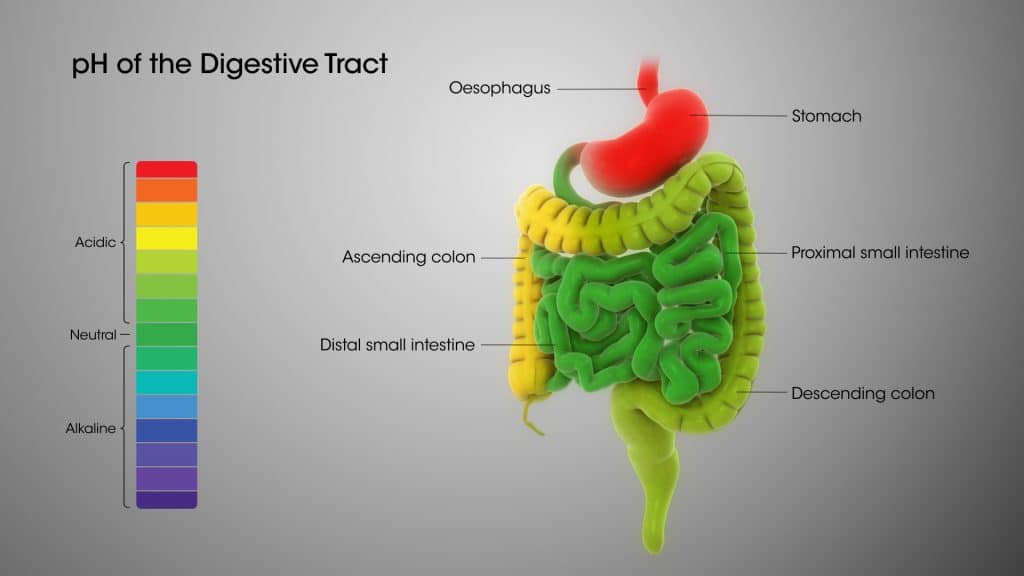
Your digestive system illustrates the importance of pH in human health remarkably well. Starting from the mouth, enzymes like salivary amylase require a slightly alkaline environment to digest food. Conversely, the stomach creates a highly acidic environment, with a pH as low as 2, which is necessary to break down food and kill harmful bacteria.
Beyond the stomach, the small intestine uses bicarbonate ions released from the pancreas to create a more alkaline environment. This alkaline pH is critical for the functioning of enzymes that break down fats and proteins. Any disturbances in these pH levels can lead to digestive issues, such as heartburn and indigestion.
pH And The Respiratory System

The respiratory system plays a vital role in maintaining pH balance through a process called respiration. Respiration influences pH by controlling the level of carbon dioxide (CO2), a mildly acidic compound, in the body. When you inhale, you bring in oxygen and exhale CO2.
However, if the respiratory system is compromised, this can lead to changes in the body’s pH level. For instance, conditions like chronic obstructive pulmonary disease (COPD) can result in an accumulation of CO2, leading to respiratory acidosis, a condition where the blood becomes too acidic. This underscores the link between pH and respiratory health.
pH In Blood And Its Critical Role
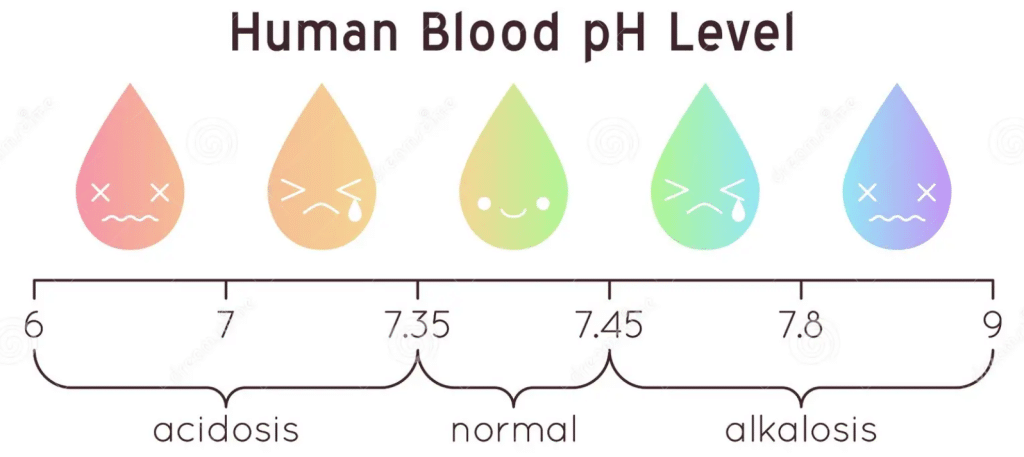
The blood’s pH is strictly regulated to stay within the range of 7.35 to 7.45, making it slightly alkaline. The body uses two primary mechanisms, the respiratory system and the kidneys, to maintain this pH balance. Maintaining this delicate balance is essential for the optimal functioning of your cells and, consequently, your organs.
When blood pH falls out of its normal range, it can result in either acidosis or alkalosis, conditions characterized by overly acidic or alkaline blood respectively. These conditions can impact numerous bodily functions and even prove fatal if not addressed promptly, reinforcing the importance of a balanced pH in human health.
Skin pH And Its Significance
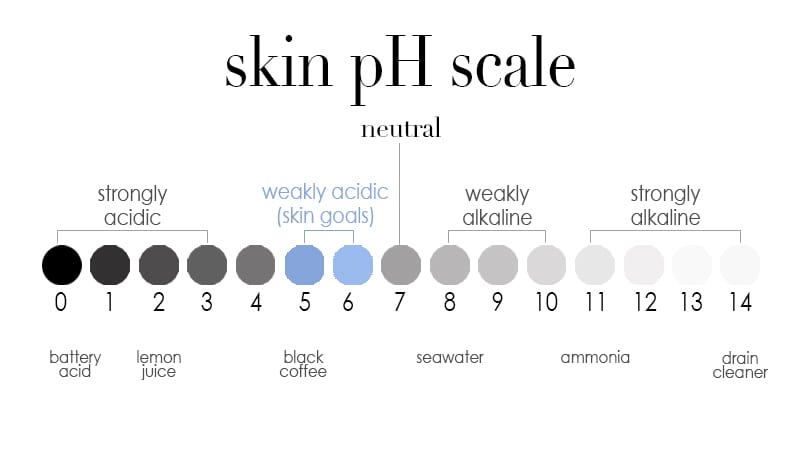
Your skin’s pH plays a crucial role in its health and function. The skin’s surface is slightly acidic, with a pH value around 5.5. This “acid mantle” helps maintain skin integrity, hydrates the skin, and protects against harmful microorganisms.
An imbalance in skin pH can result in several skin problems. For example, if your skin becomes too alkaline, it may become dry and sensitive, making it prone to infection and inflammation. On the other hand, if your skin is too acidic, it can cause irritation and redness.
pH’s Impact On Bone Health

Maintaining good bone health is essential for overall wellness, and a key factor in this is the pH level of the body. A pH level that is too acidic or too alkaline can affect the body’s ability to absorb and retain calcium, which is crucial for healthy bones. High acidity levels increase the risk of calcium being pulled from bones as your body attempts to balance the pH.
Conversely, too alkaline pH levels can lead to high calcium levels in the bloodstream, which can cause calcium deposits in soft tissues, such as tendons and cartilage. Therefore, it is crucial to maintain a balanced pH level through a healthy diet and lifestyle to ensure optimal bone health.
The Influence Of pH On Kidney Function
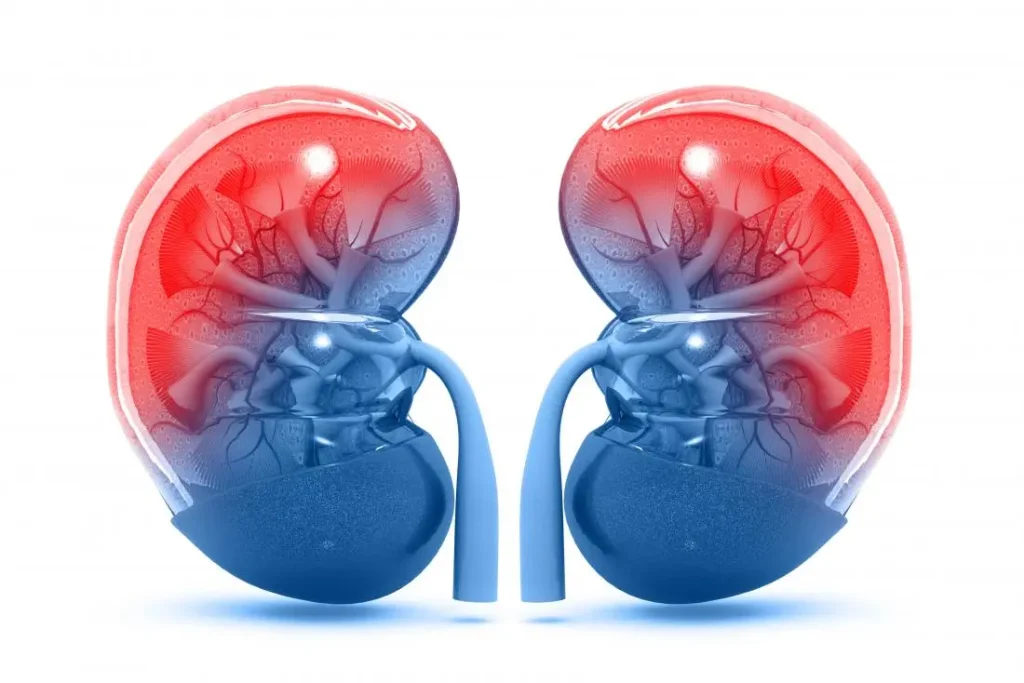
The kidneys play a critical role in maintaining pH balance by excreting excess acids or bases in urine. They also reabsorb bicarbonate from urine, which helps maintain the blood’s slightly alkaline pH. If kidneys aren’t functioning optimally, this regulatory process can be compromised.
Chronic kidney disease, for example, can lead to metabolic acidosis, a condition characterized by an excessively acidic blood pH. This could result in further damage to the kidneys, creating a vicious cycle. The Influence of pH on kidney function is also vital for people with certain kidney stones, as alkaline urine can help dissolve them.
pH In Human Health: Disease Links

The pH of body fluids also has significant implications for overall health. Research suggests that an acidic diet can increase the risk of developing many diseases, including diabetes and cancer. It is believed that a diet of acidifying foods such as red meat and processed grains can cause an elevation in uric acid levels, leading to inflammation and other chronic health issues.
In addition, some conditions, such as acid reflux and peptic ulcers, have been linked to an overly acidic stomach environment. Conversely, it is believed that a more alkaline diet can help reduce the risk of these diseases as well as improve overall health.
How Diet And Lifestyle Affect Your Body’s pH

Diet and lifestyle play significant roles in influencing your body’s pH. Consuming a diet high in acid-forming foods, such as processed foods, sugars, and certain types of meat, can tip your body’s pH towards the acidic side. Conversely, a diet rich in fruits and vegetables, which are generally alkaline-forming, can help maintain a balanced pH.
Furthermore, certain lifestyle habits such as smoking and excessive alcohol consumption can also contribute to an overly acidic environment, as these activities cause your body to produce more acidity. Thankfully, healthy habits like exercising, drinking plenty of water, and getting adequate rest can help your body maintain its natural pH balance.
Testing Your Body’s pH

Testing your body’s pH can provide insight into your health status. The most common ways to test body pH are through urine or saliva tests. These tests can give an indication of your body’s pH balance and help guide dietary and lifestyle changes for improved health.
Keep in mind that while these tests can provide a general idea of body pH, they may not precisely reflect the pH of your internal environment, such as your blood pH. However, regular monitoring can help you track your progress towards achieving a balanced pH, thus contributing to overall health.
Be Mindful Of The Role Of pH In Human Health!
Maintaining pH balance in the body is crucial for your health. Disruptions in pH can influence various bodily functions and potentially contribute to disease risk. A balanced diet, regular exercise, and managing stress are key to maintaining a healthy pH balance. Understanding the importance of pH in human health can guide you toward healthier lifestyle choices and promote overall well-being.


